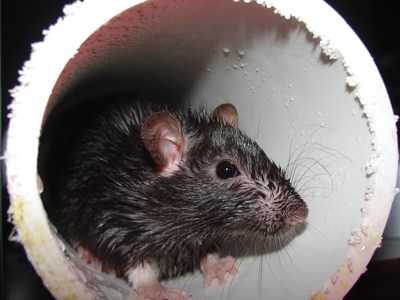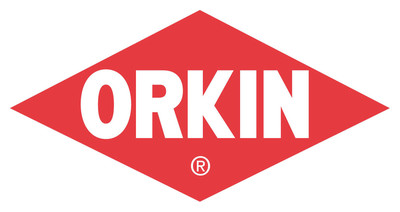Chicago Tops Orkin's Rattiest Cities List for Eighth Consecutive Year
Orkin's Top 50 Rattiest Cities List has once again named Chicago as the most infested city for the eighth consecutive year. New York follows in second place, while Los Angeles drops to third. Notable changes include Hartford, CT and Miami entering the top 20. The ranking is based on the number of rodent treatments from September 2021 to August 2022. Approximately 21 million homes in the U.S. face rodent invasions annually, with an increased risk due to outdoor dining from the pandemic. Orkin advises homeowners to take preventive measures against these pests.
- Chicago's consistent ranking as the top city indicates a significant demand for pest control services, benefiting Orkin's business model.
- The rise in Manhattan and Miami indicates growing awareness and potential for pest control services in major urban areas.
- The continuous rodent issue may indicate underlying urban infrastructure problems that could affect pest control effectiveness.
- The data reflects a growing public health concern which may require increased operational costs for Orkin to address.
New York Rises to Second Spot, Two Indiana Cities Break into the Top 50
ATLANTA, Oct. 17, 2022 /PRNewswire/ -- Chicago may soon need to change its name from "The Windy City" to the "Rattiest City," after topping Orkin's Top 50 Rattiest Cities List, yet again. Orkin released the list today, and for the eighth consecutive year, the Midwest city takes the top spot. New York beat out Los Angeles for the #2 ranking and entering the top 20 this year is Hartford, CT, taking the #19 spot, and Miami, rising three spots to secure the #20 spot.
Orkin ranked metro regions by the number of new rodent treatments performed from September 1, 2021, to August 31, 2022. This ranking includes both residential and commercial treatments.
1. Chicago | 26. Richmond (+2) |
2. New York (+1) | 27. Kansas City (-2) |
3. Los Angeles (-1) | 28. Norfolk (-1) |
4. Washington, D.C. | 29. Nashville (+7) |
5. San Francisco | 30. St. Louis |
6. Philadelphia (+1) | 31. Grand Rapids (+1) |
7. Baltimore (-1) | 32. Raleigh (+3) |
8. Cleveland, Oh. (+2) | 33. Champaign (+4) |
9. Detroit (-1) | 34. Albany (-3) |
10. Denver (-1) | 35. Louisville (+5) |
11. Seattle | 36. Sacramento (-7) |
12. Minneapolis | 37. New Orleans (-4) |
13. Boston | 38. Charlotte (+4) |
14. Atlanta (+1) | 39. Buffalo (+2) |
15. Indianapolis (-1) | 40. Flint (-6) |
16. Pittsburgh | 41. Greenville (+3) |
17. Cincinnati (+2) | 42. Syracuse (+4) |
18. San Diego (-1) | 43. Tampa (+7) |
19. Hartford (+2) | 44. South Bend (+21) |
20. Miami | 45. Portland (-7) |
21. Milwaukee (+1) | 46. Phoenix (-3) |
22. Houston (-4) | 47. Charleston |
23. Dallas (-3) | 48. Ft. Wayne (+12) |
24. Portland, OR | 49. Orlando (+3) |
25. Columbus, OH (+1) | 50. Burlington (-11) |
Each fall, mice and other rodents invade an estimated 21 million homes in the United States. They typically enter homes between October and February looking for food, water and shelter from the cold. And unique to previous years, with the influx of outdoor dining structures brought on by the pandemic, rodents have found the perfect place to dine, live and multiply, so consumers should pay extra attention to the attractants that entice rats and mice.
"Rodent infestations are among the top pest issues of the fall and winter seasons," said Ben Hottel, an Orkin entomologist. "Not only are mice and rats a nuisance, but they are known to spread a variety of dangerous diseases, including Salmonella and Hantavirus."
Beyond health issues, rodents can cause severe structural damage with their strong jaws and burrowing skills. They have oversized front teeth for gnawing, and teeth which are adapted for chewing a variety of items including electrical wires, water pipes and gas lines.
Because of the threats that rodents pose, it's important for homeowners to know how to spot an issue in order to take a proactive approach in eliminating them from their homes. A few common signs of a rodent infestation include:
- Droppings: Rodent droppings are often left behind in places where food is stored, such as kitchen cabinets or pantries, under sinks, inside chewed cardboard boxes, along baseboards and on top of wall beams
- Gnaw marks: Mice are known to bite through walls, wood and wires. The damage to wiring within walls can increase the risk for a house fire.
- Nests: Rodents prefer to nest in dark, secluded areas where there is little chance of disturbance. Be on the lookout for shredded paper products, cotton, packing materials and other fabrics, as house mice like to build nests out of these materials.
- Rub marks: Rats tend to leave dark grease or dirt marks along walls and floorboards as they follow a trail throughout the home between their nest and food.
- Strange noises: Scurrying in the walls or in the attic could mean a rodent family is present. Rodents are especially fond of attics as it's an insulated area for nest building.
The good news is homeowners can help prevent infestation troubles by taking a proactive approach in eliminating entryways into their home. To help residents avoid the potential health and safety risks associated with rodents, Orkin recommends the following tips:
- Store away food. Small crumbs and garbage are popular food sources, as are dry goods such as grains and cereals. These should be kept in sealed metal or glass containers to prevent contamination.
- Declutter. Cardboard objects prove attractive to rodents, as they tend to chew them up for use in their nests. Take advantage of your extra time at home to clean and organize crowded spaces around the house.
- Maintain your landscaping. Tall grass with adequate harborages, such as woodpiles next to the house, can be ideal habitats for rodents. Tree branches in contact with homes can also offer rodents easy access to the upper levels of your home where they may find a way into the attic.
- Inspect both inside and outside your home. Keep an eye out for rodent droppings, burrows and rub marks along baseboards and walls. The sooner rodents are detected, the better.
- Look for possible entry points. Seal any holes and cracks that are found around your home. Install weather strips around entryways, especially under doors, to help keep mice out of your home.
Using the tips above, homes across the nation can be better equipped to keep rodents out. To effectively control rodent infestations, contact an Orkin Pro who can assess your situation, implement a sound solution that is designed just for your home and monitor for improvements over time.
For more information about rodent prevention, visit Orkin.com/pests/rodents.
Founded in 1901, Atlanta-based Orkin is an industry leader in essential pest control services and protection against termite damage, rodents and insects. Orkin has 358 owned and operated branch offices and 47 franchises in the U.S. The company also has international franchises and subsidiaries in Canada, Europe, Central America, South America, the Caribbean, the Middle East, Asia, the Mediterranean, Africa, and Mexico. For more than 120 years, Orkin has been committed to protecting public health by helping prevent and control pests as well as educating consumers on the potential health risks posed by these pests. As such, Orkin Pros always put the customer first and approach every opportunity with the utmost professionalism and the knowledge and skillset to solve any pest problem. Since 2020, Orkin has partnered with the American Red Cross® to inform the public about the health threats of mosquitoes while boosting our country's blood supply through monetary contributions and blood donations. Orkin is committed to hiring the world's best to help protect the places where we live, work and play. Learn more about careers at Orkin here. Visit Orkin.com for additional information. Orkin is a wholly-owned subsidiary of Rollins Inc. (NYSE: ROL). Follow us on Facebook, Instagram and LinkedIn.
![]() View original content to download multimedia:https://www.prnewswire.com/news-releases/chicago-tops-orkins-rattiest-cities-list-for-eighth-consecutive-year-301650069.html
View original content to download multimedia:https://www.prnewswire.com/news-releases/chicago-tops-orkins-rattiest-cities-list-for-eighth-consecutive-year-301650069.html
SOURCE Orkin, LLC
FAQ
What city is ranked as the rattiest according to Orkin's 2022 list?
Which cities have entered the top 20 in Orkin's Rattiest Cities List?
How does Orkin rank cities for rodent infestations?
What is the impact of rodent infestations on homes?









